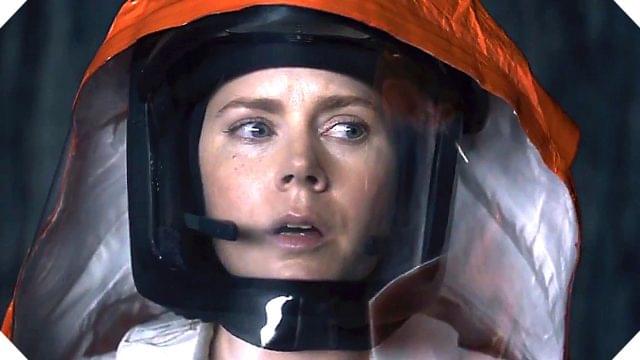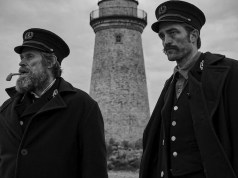
Dr. Louise Banks, a linguistics expert, knows how important word choice is when she tells her daughter, “I used to think this was the beginning of your story.” We hear this at the beginning of “Arrival,” accompanied by images of the girl’s birth and early childhood, narrated by Louise (Amy Adams), who goes on to show us the girl’s death as a teenager — the end of her story, it would seem. But Louise isn’t so sure about “beginnings” and “endings” anymore.
“Arrival” is optimistic, life-affirming science-fiction of the highest order, using an alien first-contact scenario to tell a wholly engrossing story in which mankind’s worst tendencies — selfishness, suspicion, aggression — threaten to overtake our best ones. Directed by Denis Villeneuve (“Prisoners,” “Sicario”) and written by Eric Heisserer (“Final Destination 5”) from Ted Chiang’s short story “Story of Your Life,” this steadily paced, awe-inducing drama of discovery will make you feel more hopeful about humanity, and about the state of sci-fi filmmaking.
After the mournful, dreamy prologue, we see Louise alone, teaching linguistics at a university on the day that 12 giant spacecrafts land at seemingly random points around the globe, including one in Montana. As the world waits anxiously for a hint one way or the other about the aliens’ intentions, Louise is summoned by the military — represented by Col. Weber (Forest Whitaker, doing what must be a Boston accent? I think?) — to visit the Montana ship and try to make sense of the E.T.s’ language.
She’s accompanied by Ian Donnelly (Jeremy Renner), a theoretical physicist — science geek and language geek, working together to understand the physical and mental processes involved in the aliens’ method of communication. This, Louise insists, is a prerequisite to understanding their intentions. You can’t just ask, “Why are you here?” First you have to establish that the aliens understand what a question is, and that they indeed act on deliberate choices (as opposed to mere instinct). Otherwise, there are bound to be catastrophic misunderstandings. We all remember the “Twilight Zone” episode about the book called “To Serve Man.”
The process of learning the rudiments of the aliens’ language and teaching them ours is a lengthy one, with brief sessions possible only once every 18 hours in a chamber on the ship where the humans and aliens (and their respective atmospheres) are separated by an invisible barrier. Louise makes progress deciphering the creatures’ spoken and written language (the details of which are nerdily fascinating), but not everyone has the patience for it. One national security agent, Halpern (Michael Stuhlbarg), jumps at every opportunity to assume malevolent intentions. And remember, there are 12 of these things, each in a different country, some of them more bellicose than others (*cough*China*cough*). The various Earthling agencies cooperate at first, sharing information learned from interactions with their local ships, but as days and weeks go by, people around the world grow restless with their governments’ inaction.
The situation is fraught with tension, which Villeneuve lets build naturally. On a more personal level, Louise is overworked and exhausted, and might be cracking up. She hears snippets of conversations between her and her daughter, sometimes in her sleep but sometimes when she’s awake, seemingly reliving old memories. She and Ian are on the same page about their course of action with the aliens, but they know they’re in a quickly fading minority of people who don’t want to just open fire. These two academics are the only ones standing in the way of interplanetary war (which, let’s be honest, would be over very quickly, probably in favor of the species that mastered interplanetary travel).
Though the circumstances are perilous and the stage is set for “Independence Day” destruction, it’s not that kind of film. Villeneuve emphasizes the scientific process, the step-by-step logistical protocols involved in communicating with alien visitors. The film strives to portray the events and the world’s response to them realistically, putting this in the camp of “serious” sci-fi — but, I hasten to add, not dour or humorless. There are sequences, like the one where our group is first admitted to the alien ship, that exist just to fill us with wonderment, to show us how awesome science is. Neither is there any coyness about the aliens. Once we meet them (after a terrific build-up), they’re shown often and in detail. Part of being serious about sci-fi is acknowledging that your audience wants to see some damn aliens.
All of this makes the film very good. What makes it great — what makes all great sci-fi great — is its heart. The aliens’ mission and technology dovetail with Louise’s personal quests in sublime, emotional ways, bringing symmetry to the story and grounding it in experiences, fears, and desires that are universally relatable. This poignant and affecting film is intelligent, personal sci-fi at its best, an instant addition to the canon.
A (1 hr., 56 min.; )





